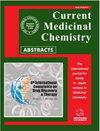To Elucidate the Effective Role of Small Molecule Regulated lncRNAs in the Tumour Microenvironment in Immunotherapy
IF 3.5
4区 医学
Q2 BIOCHEMISTRY & MOLECULAR BIOLOGY
引用次数: 0
Abstract
The tumour microenvironment is a complex ecosystem comprising tumour cells, and cancer stem cells, and support cells that facilitate cancer growth and escape from treatment. Cancer immunotherapy focuses on immunological pathways such as PD-1/PD-L1 and CTLA-4 to target cancer stem cells via immune cells. Small molecules, immune checkpoint inhibitors, are employed to impede tumour growth by targeting cellular mediators in the cell cycle and tumour microenvironment. Long non-coding RNAs (lncRNAs) affect the growth, development, motility, and differentiation of cancer cells by regulating gene expression and are therefore considered important biomarkers. Small molecules demonstrate their effects on gene expression and behaviour of cancer cells by inducing lncRNAs. This relationship between lncRNAs and small molecules is of great importance in terms of their impact on cancer and the tumour microenvironment. The evaluation of this communication in clinical trials is of critical importance for the development of therapeutic strategies. This review provides a detailed description of the role of lncRNAs and small molecules in the tumour microenvironment and their relationship with cancer stem cells. Thus, the potential of controlling lncRNAs and using anti-cancer small molecules in TME to improve the efficacy of cancer therapy was evaluated.阐明小分子调控的 lncRNA 在肿瘤微环境免疫疗法中的有效作用
肿瘤微环境是一个复杂的生态系统,由肿瘤细胞、癌症干细胞以及促进癌症生长和逃避治疗的支持细胞组成。癌症免疫疗法侧重于通过免疫细胞靶向癌症干细胞的免疫途径,如 PD-1/PD-L1 和 CTLA-4。小分子免疫检查点抑制剂通过靶向细胞周期和肿瘤微环境中的细胞介质来阻碍肿瘤生长。长非编码 RNA(lncRNA)通过调节基因表达影响癌细胞的生长、发育、运动和分化,因此被认为是重要的生物标志物。小分子通过诱导 lncRNAs 对癌细胞的基因表达和行为产生影响。lncRNA 与小分子之间的这种关系对癌症和肿瘤微环境的影响非常重要。在临床试验中评估这种交流对制定治疗策略至关重要。本综述详细描述了 lncRNAs 和小分子在肿瘤微环境中的作用及其与癌症干细胞的关系。因此,本文评估了在肿瘤微环境中控制 lncRNAs 和使用抗癌小分子来提高癌症治疗效果的潜力。
本文章由计算机程序翻译,如有差异,请以英文原文为准。
求助全文
约1分钟内获得全文
求助全文
来源期刊

Current medicinal chemistry
医学-生化与分子生物学
CiteScore
8.60
自引率
2.40%
发文量
468
审稿时长
3 months
期刊介绍:
Aims & Scope
Current Medicinal Chemistry covers all the latest and outstanding developments in medicinal chemistry and rational drug design. Each issue contains a series of timely in-depth reviews and guest edited thematic issues written by leaders in the field covering a range of the current topics in medicinal chemistry. The journal also publishes reviews on recent patents. Current Medicinal Chemistry is an essential journal for every medicinal chemist who wishes to be kept informed and up-to-date with the latest and most important developments.
文献相关原料
| 公司名称 | 产品信息 | 采购帮参考价格 |
|---|
 求助内容:
求助内容: 应助结果提醒方式:
应助结果提醒方式:


